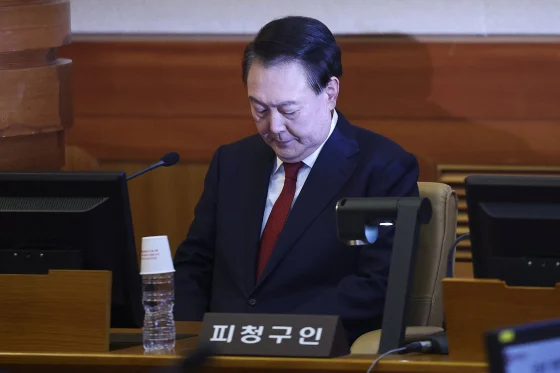Former South Korean President Yoon Suk Yeol has been formally indicted on charges of being the “ringleader of an insurrection” following his failed attempt to declare martial law last December.
Prosecutors announced the decision on Sunday, ordering Yoon to remain in detention as he awaits trial.
Yoon, who was impeached shortly after he declared martial law on December 3, has been held at the Seoul Detention Center since his dramatic arrest earlier this month.
His bid to suspend civilian rule lasted just six hours before lawmakers defied armed soldiers to vote down the declaration in parliament.
The impeachment and subsequent indictment mark an unprecedented chapter in South Korean political history, making Yoon the first sitting president to be arrested while in office.
The prosecutors justified the charges by citing evidence gathered during their investigation and claimed there remained a significant “risk of evidence destruction” if Yoon were released. They emphasised that the specific charge of leading an insurrection is not shielded by presidential immunity.

Yoon’s legal team denied the allegations and pledged to contest the charges, arguing that his martial law declaration did not meet the legal definition of insurrection.
The opposition welcomed the indictment, with lawmaker Han Min-soo calling for accountability for all involved in the alleged scheme.
“We need to hold not only those who planned this illegal insurrection but also those who fueled it with misinformation,” Han said.
Supporters of Yoon, however, have rallied behind him, echoing rhetoric reminiscent of former U.S. President Donald Trump’s “stop the steal” claims, alleging election fraud and legislative obstruction as justification for his actions.
The indictment is seen as a critical step in preserving South Korea’s constitutional order. Bae Kang-hoon, co-founder of the think tank Valid, stated that the indictment reaffirms that the constitutional order is functioning as it should.
Yoon’s trial must begin within six months, during which the Constitutional Court will also decide whether to uphold his impeachment. If the court rules against him, he will be formally stripped of the presidency, and a new election will be called within 60 days.
The case has plunged South Korea into political uncertainty, with questions over accountability and governance dominating public discourse.


